Posted on: 29 July 2015
By: raymonm
No Comments »
Filed under: Law and Popular Culture
This month marked the long awaited rebirth of our wonderful cinema, now renamed the
Regent Street Cinema. For a long time for staff at the University it was known as The Old Cinema, and has had various names over the years, as will be clear when the book about this,
The Magic Screen, is published in June 2015. I was lucky enough to be involved with the book, and also have had some small involvement with the Cinema over the years in various guises, see for example some previous blog posts
here and our exhibition
Classified. The last few years have seen things really develop apace – a lot of the credit for this must go to our Vice Chancellor – not only has he seen the Cinema as an important project in its own right but has really seen fit to celebrate our heritage, including fully supporting the
Archive and our excellent archivists. This was something which had previously been under-acknowledged and utilised and they do some brilliant work – see for example their excellent online exhibition on
World War One and the Polytechnic and recent exhibition of
gig posters. They have of course also been heavily involved in the Cinema redevelopment. The Cinema itself is a beauty ands hopefully lots of people will come to visit it. Obviously opening a single screen cinema in the West End, and one that whilst it is a commercial cinema also is heavily linked into the University’s educational ethos, which undoubtedly makes it a challenge to programme. That said, the initial programme has been superb – eclectic and imaginative in equal measure, and credit must go to the cinema director,
Shira MacLeod for this.
The opening night saw the premiere of Lambert and Stamp for example, with Terence Stamp giving a Q&A and in the days since the programme has constantly surprised. I was lucky enough to Chair a Q&A on excellent new film Bypass. Its a hard hitting and great film, and provoked a vehement discussion. There is certainly a political element to it, and the team behind it were very keen to ensure it was released before the election. As it happened we screened this a week after the election, and the Q&A commenced almost exactly a week after the polls had closed.
 |
| Bypass; theatrical poster |
We were privileged to have Samm Haillay, the Producer; David Procter, the Director of Photography, and Noel McLaughlin, a media academic and massive supporter of the film in attendance, and the first question, based upon this post election scenario, elicited some passionate audience responses. In fact, we did not have much time for any of the other questions I had prepared (including some classics on genre bending, finance and a discussion of Director Duane Hopkin’s father’s statement that ‘academics don’t live in the real world, they are either mentally or sexually frustrated’ that I was going to put to David and Noel, the 2 academics on the panel) and as much of the discussion was taken up with audience and panel thoughts on how the film fitted into this and some debate around who the audience for the film was and whether it could reach further. The consensus was that it was an important and passionate film that deserved, and needed, to be seen. The point was also made that it was beautifully shot and it was a privilege to have David in attendance although time constraints meant we could not drill down on this during the Q&A, but luckily we eventually found somewhere to carry on the discussion afterwards, nothwithstanding the big queue at theSocial.
I’ll post on the Cinema again as its journey continues, and really hope that as many people as possible get to visit this historic space and see some of the brilliant films we are screening. Also, try and catch Bypass – whilst I read it as a film about hope, Samm wanted it to be seen as a call to arms, and reflecting on it again I can see this as a clarion call and a touchstone for a different sort of hope. I’ll end this as the film does, with the quite marvellous Soldier On by Richard Hawley and with a thought for the late Chris Collins, to whom the film is dedicated.
Posted on: 13 February 2015
By: wyattr1
No Comments »
Filed under: Law and Popular Culture, Uncategorized
An entertainment law ‘dream team’ is to assemble at Westminster Law School on 18 March 2015, to conduct a mock negotiation of the sale and purchase of a music publishing company. All of the participants have worked with each other over many years on transactions totalling billions of dollars, and Westminster Law School is thrilled to be able to host them for this groundbreaking event. The participants are:
Fred Wistow
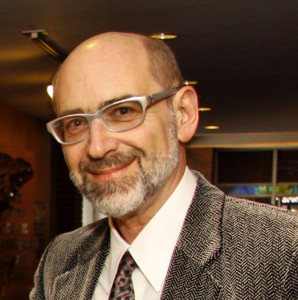
Fred Wistow is a consultant to and director of several non-profit organizations and a contributing writer to a periodical for therapists. A long time ago, in a galaxy far, far away he was the Executive Vice President and General Counsel of Time Warner’s Music Group.
Fred will be the moderator of the session.
Evan Medow
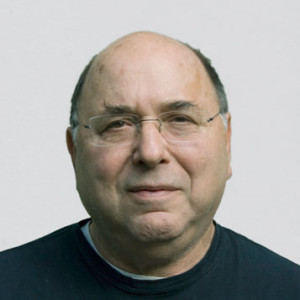
Evan graduated from UCLA and was admitted to the California and Federal Bars in early 1968. He has represented clients as diverse as Warner Bros. Pictures, Warner Bros. Music Publishing (now Warner Chappell Music Publishing), Colombia Pictures, Geffen Kaye Music Publishing, and Windswept Pacific Entertainment Co, as well as many successful songwriters, producers and record companies. In 1991, he took a position as the CEO of Windswept Pacific Entertainment Co. and subsequently, its successor entity, Windswept Holdings LLC.
Evan has a dual role in the negotiation as seller and M&A counsel.
Chris Ancliff

Chris Ancliff joined Warner Music Group in 2009 as General Counsel, International, WMG. In this position he has responsibility for all of the Group’s legal and business affairs activities outside the US, working closely with WMG’s recorded music and music publishing affiliates throughout Europe, Asia and Latin America. Prior to this, he was Vice President at EMI International, rising to the position of General Counsel, EMI Group, in 2007. During his eleven-year tenure at EMI, Ancliff eventually became responsible for all aspects of the company’s legal and business affairs activities including mergers and acquisitions, artist negotiations, litigation and industry issues.
Chris is acting as the buyer in the negotiation.
John Frankenheimer
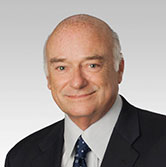
John T. Frankenheimer’s practice is centred in the entertainment and media industries, with emphasis on both institutional and talent clients. He also represents writers, producers and directors in both film and television, as well as various technology and media companies. Mr Frankenheimer speaks frequently on topics related to entertainment law and has given presentations at numerous universities as well as numerous industry sponsored events and seminars.
John will be acting as the buyer’s M&A counsel.
Charles Bradbrook
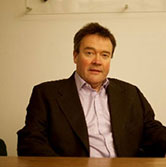
Charles Bradbrook has been advising clients in the media and entertainment sector for over 30 years. He is currently a partner in SRLV, a media specialist accountancy practice, prior to this he was a partner in Deloitte. Charles has advised on a number of transactions involving the purchase, sale and restructuring of a wide range of independent recording and publishing companies. This has made him an expert on the issues that affect the owners of those companies both from a commercial and tax perspective.
Charles will be undertaking financial due diligence and providing tax advice where necessary.
Robert Allan
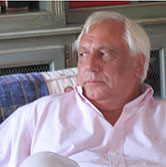
Robert is an Associate Fellow at Westminster Law School and was a partner in the Commercial Group at Simkins LLP. During the first 20 or so years of practice Robert was a music talent lawyer specialising in the negotiation of recording music publishing and management contracts on behalf of his artist clients as well as the internal legal organisation of the bands that he represented. During those years Robert represented many household names, including America, Mike Oldfield, Dire Straits, Wham, The Average White Band and The Scorpions. More recently, Robert’s clients have included EMI (who he represented on a number of transactions including the acquisition of Chrysalis Records), Filmtrax, Virgin Records and Virgin Music Publishing. Robert also worked in connection with the proposed – but ultimately aborted – merger between EMI and Warner Music Group. He represented EMI in respect of many complex corporate issues following the acquisition of Terra Firma by EMI.
Robert will be undertaking copyright and contractual due diligence.
Robert also undertook the enormous task of organising the event, and without him this would never have happened!
Register online for this event
More information and online registration for once in a lifetime: a mock negotiation of the sale and purchase of a music publishing company.
Posted on: 17 December 2014
By: wyattr1
No Comments »
Filed under: Law and Popular Culture, Uncategorized
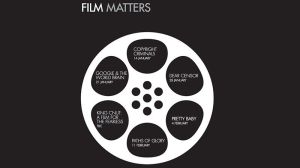
The Regent Street Cinema, the birthplace of British cinema, is due to open to the public in spring 2015 and the Centre for Law, Society and Popular Culture at Westminster Law School is screening a series of films to mark this special occasion.
The Centre has long championed film at the University, creating the first UK module on Film and the Law, setting up the Compton Film Club and organising the exhibition Classified with the British Board of Film Classification in 2012, in addition to publishing research in the area.
FILM MATTERS, will be a series of six films covering a variety of perspectives and areas of interest to the work of the Centre, including intellectual property and censorship. In addition the film Paths of Glory will be screened as part of the Centre’s activities relating to World War One.
We are delighted that screenings of Dear Censor and Pretty Baby will be followed by a discussion with Craig Lapper, Senior Examiner at the British Board of Film classification.
More information and screening times for FILM MATTERS.








